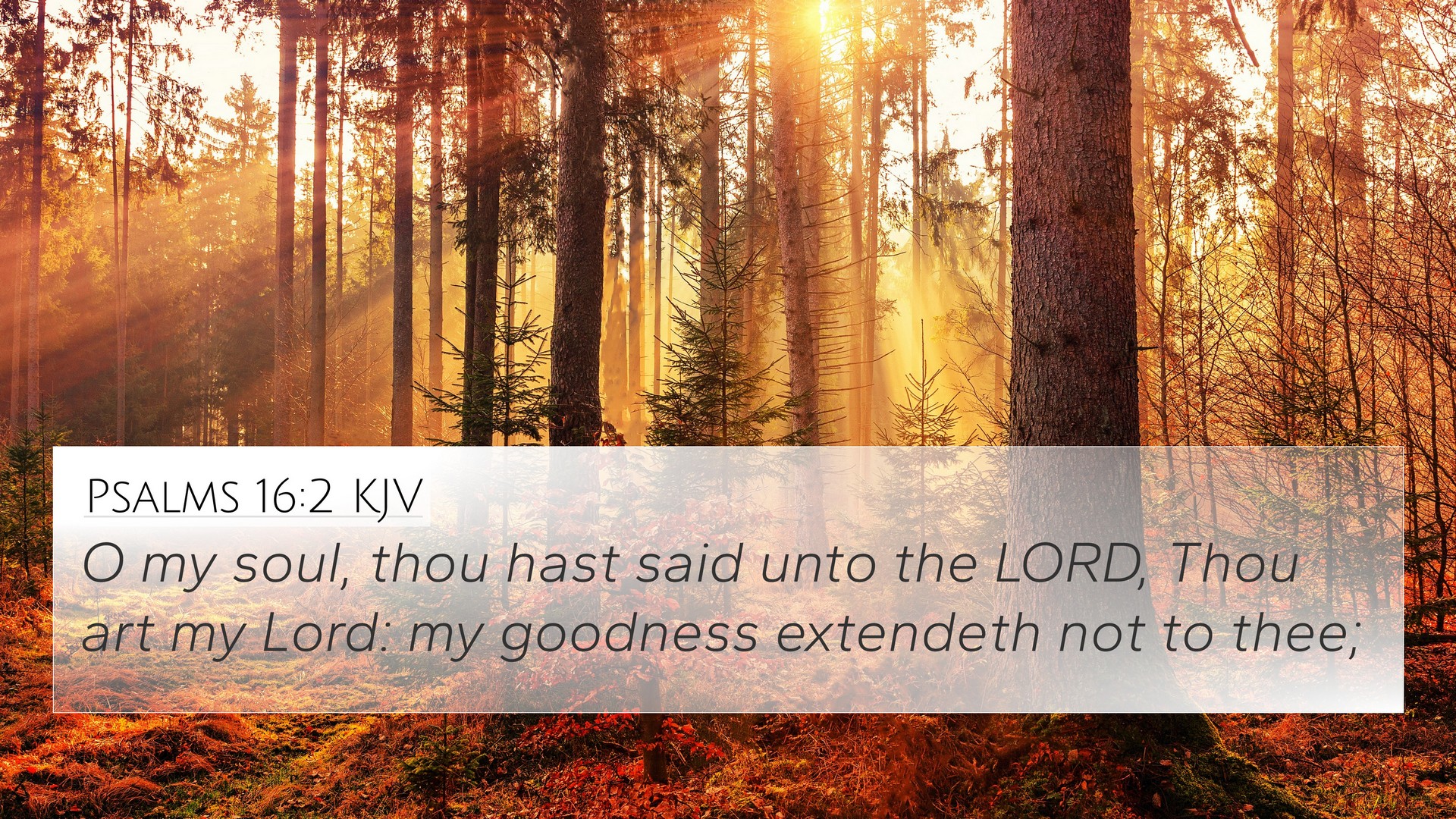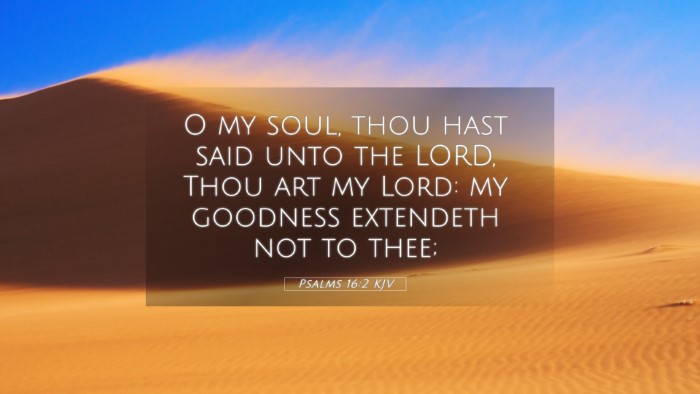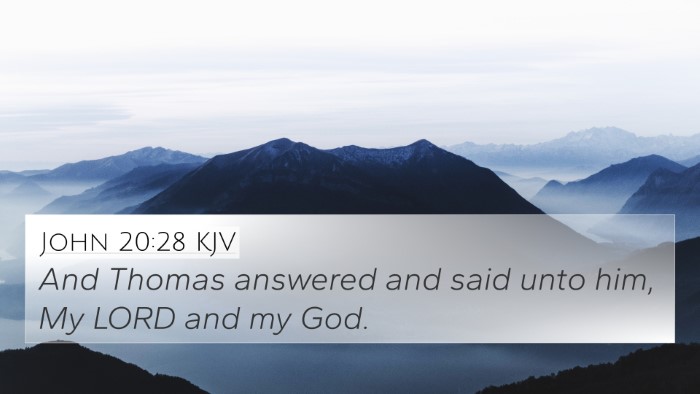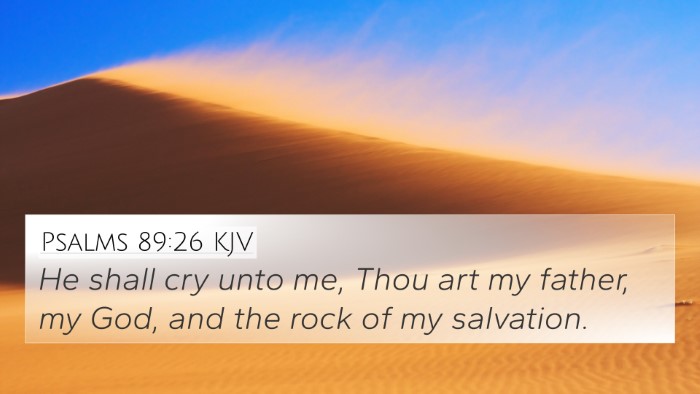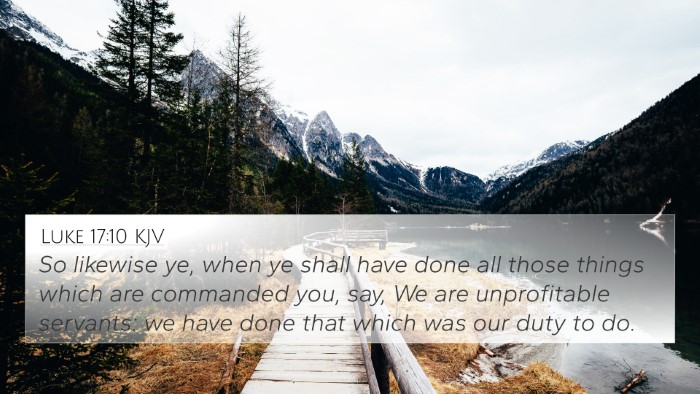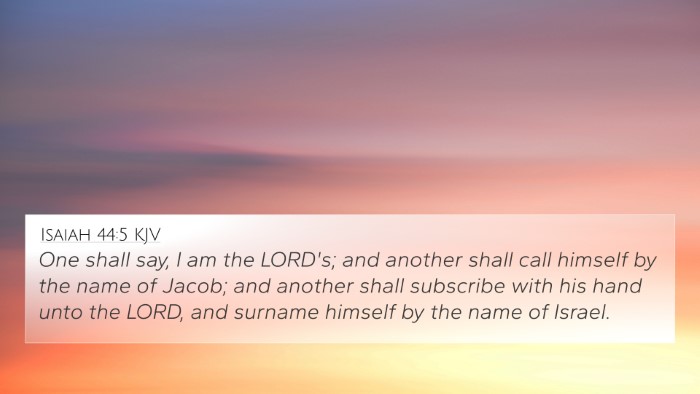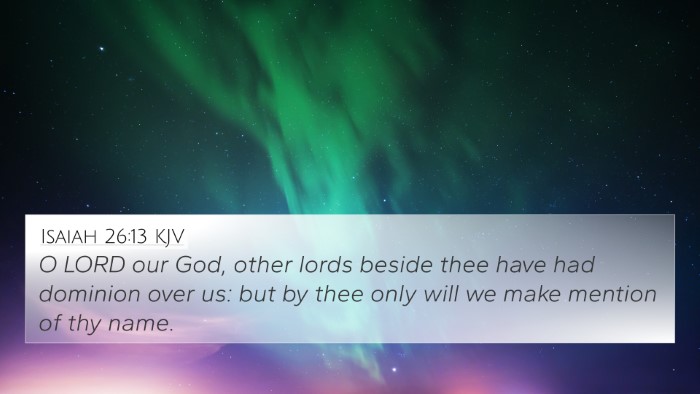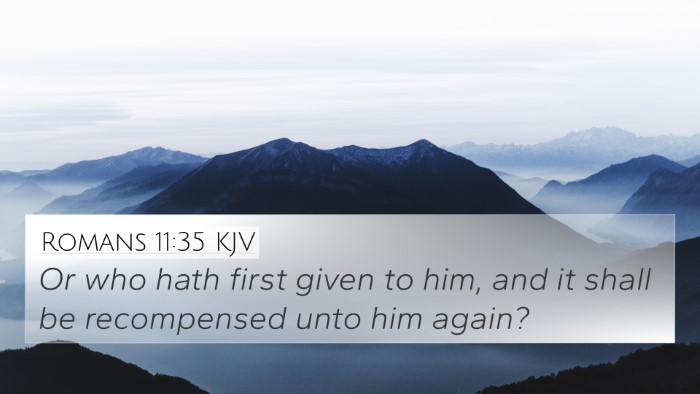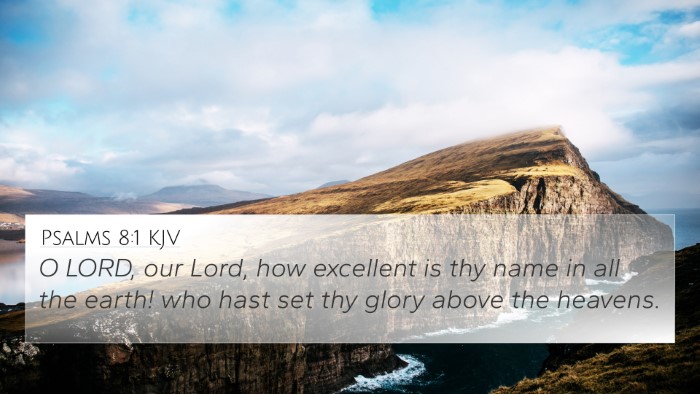Understanding Psalms 16:2
Psalms 16:2 reads: "You have said to the Lord, 'You are my Lord; apart from you I have no good thing.'" This verse encapsulates a profound admission of faith in God's sovereignty and provision.
Summarized Commentary Insights
This verse can be understood through several public domain commentaries, offering a multifaceted perspective on its meaning:
- Matthew Henry: Henry notes that this verse reflects a deep personal relationship with God. The psalmist acknowledges that all goodness comes from the Lord. By recognizing God as 'my Lord,' the believer emphasizes that true satisfaction and happiness are found solely in Him.
- Albert Barnes: Barnes elaborates on the implications of acknowledging God as the source of all goodness. He points out that this declaration is a form of trust and dependence on God, illustrating that the psalmist desires nothing apart from God's presence and blessing.
- Adam Clarke: Clarke focuses on the aspect of loyalty in the phrase 'my Lord.' He argues that this personal claim establishes the psalmist's devotion and the understanding that the relationship with God is central to life. The absence of good outside of God reflects both reverence and a deep spiritual truth.
Bible Verse Cross-References
To further enrich the understanding of Psalms 16:2, we can explore several related Bible verses that echo its themes:
- Psalm 73:25: "Whom have I in heaven but you? And earth has nothing I desire besides you." This verse parallels the idea of exclusive reliance on God.
- James 1:17: "Every good gift and every perfect gift is from above, coming down from the Father of lights." This confirms that all goodness originates from God.
- Philippians 4:19: "And my God will meet all your needs according to the riches of his glory in Christ Jesus." This asserts God’s provision for believers.
- John 15:5: "I am the vine; you are the branches. If you remain in me and I in you, you will bear much fruit; apart from me, you can do nothing." This reinforces the concept of reliance on Jesus for spiritual vitality.
- Psalm 84:11: "For the Lord God is a sun and shield; the Lord bestows favor and honor. No good thing does he withhold from those whose walk is blameless." This verse emphasizes God’s goodness to those who honor Him.
- Matthew 6:33: "But seek first his kingdom and his righteousness, and all these things will be given to you as well." This illustrates prioritizing God leads to the fulfillment of needs.
- 1 Corinthians 10:31: "So whether you eat or drink or whatever you do, do it all for the glory of God." This implies that all activities have meaning when done in connection with God.
Theological Implications of the Verse
In considering Psalms 16:2 and its cross-references, several theological implications arise:
- Sovereignty of God: The psalmist acknowledges God as the ultimate authority and source of goodness.
- Dependency on Divine Provision: There is a clear recognition that all blessings come from God, making believers reliant on His grace.
- Relationship Over Ritual: The focus on a personal relationship with God signifies that personal faith is more crucial than ritualistic practices.
Applications for Modern Believers
As believers reflect on Psalms 16:2, there are key applications to consider:
- Personal Reflection: Individuals are encouraged to assess where they seek satisfaction and ensure it aligns with God's presence.
- Developing Dependency on God: Proactively engaging in prayer and meditation can deepen one’s reliance on God for life's goodness.
- Communicating Faith: Sharing this understanding with others can facilitate discussions on the nature of God’s provided goodness.
Conclusion
Psalms 16:2 invites believers into a deeper relationship with God, emphasizing His central role in providing true goodness and satisfaction. By engaging with related scripture, believers can enrich their understanding of the divine nature, ensuring that their spiritual journey remains rooted in the recognition that apart from God, there is no true good.
Tools for Bible Cross-Referencing
To explore these connections further, believers can utilize various tools for Bible cross-referencing such as:
- Bible Concordances: These tools help locate verses related to specific keywords.
- Bible Reference Resources: Guides and studies that map out relational scripture.
- Cross-Reference Bible Study Methods: Systematic approaches for comparing and linking scriptures.
In the journey of faith, recognizing the inter-Biblical dialogue present in passages like Psalms 16:2 serves to strengthen one's understanding of God's overarching narrative and the rich tapestry of scripture.
